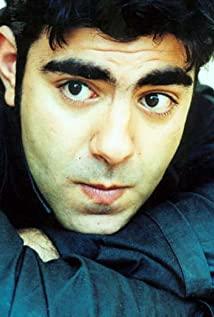Incidentally, it is Sibel who ignites Cahit's Turkish identity. Though Sibel is not a traditional girl, always trying to rebel, she makes Cahit meet her conservative Turkish family who remains strict about rules for marriage, and demand that he goes through traditional wedding routines. But on the positive side, he improves his Turkish, which should be his native language, and gradually falls in love with this German-Turkish girl. After being freed from prison, he follows Sibel to Istanbul. The transition for Cahit happens unintentionally.
However, Cahit chooses to go back not only because of love, but to find himself. He may not have any idea of what it would be like and what will go on when he really goes back, but as part of his potential identity, he just feels curious to know more about it. The final scenario when Cahit takes the bus alone to go back to the town where he was born seems like a sad ending for the love story, while it is in coherent with the main topic: quest to find themselves. The film suggests that the quest as well as the passion for life is still on going. Throughout the time, both Sibel and Cahit “seek to invent a new life, a new morality, and they pay a price for trying to do so.”
View more about Head-On reviews









